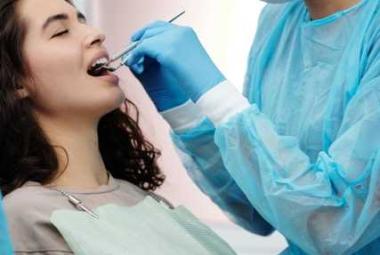Breast cancer is the most common cancer in women. In 1990, the incidence of breast cancer was 5–7 per 100 women in developed countries in patients less than 70 years of age, and 1–2 per 100 in Asian and African countries.1
Several studies have suggested that breastfeeding may reduce the risk of several types of breast cancers.
A study in Japan concluded that breastfeeding may possibly decrease the risk of breast cancer.2 In this project, case–control studies suggested a statistically significant reduction of risk of breast cancer for women who had breastfed, and in women with a longer duration of breastfeeding.
In a meta-analysis of 47 epidemiological studies in 30 countries, which included 50,302 women with invasive breast cancers and 96,973 controls, the incidence of breast cancer in parous women was reduced (71% vs 79%) if they had breastfed an infant, and if their average lifetime duration of breastfeeding was longer (9·8 vs 15·6 months).3
The relative risk of breast cancer decreased by 4.3% (95% CI 2·9–5·8; p<0·0001) for every 12 months of breastfeeding and by 3·4% (0·9%; p<0·0001) for each child breastfed. The size of the reduction in the relative risk of breast cancer associated with breastfeeding did not differ significantly for women in developed and developing countries and did not vary by age of the woman, menopausal status, ethnic origin, the number of births a woman had and her age when her first child was born. The longer women breastfed, the more they were protected against breast cancer. The lack of breastfeeding, or a shorter duration of breastfeeding made a major contribution to the higher incidence of breast cancer in these countries.
Another study examined the relationship between a history of breastfeeding and the risk of breast cancer.4 Four hundred breast cancer cases and 400 controls were included in this study. A significantly reduced risk of breast cancer was found for those whose lifetime duration of breastfeeding was 73–108 months (Odds ratio (OR) = 0.65, 95% CI, 0.36–1.18) and for those who breastfed for >109 months (OR = 0.42, 95% CI, 0.20–0.84). Stratification by menopausal status indicated a reduced risk of breast cancer associated with a longer duration of breastfeeding for both pre and postmenopausal women. These results suggest an inverse association between breastfeeding and breast cancer risk.
According to researchers possible mechanisms by which breastfeeding protects against breast cancer include:
- Reduced systemic estrogen and progesterone levels during lactation.
- Increased prolactin due to breastfeeding.
- Excretion of estrogens and carcinogens out of the breast ducts.
- Terminal differentiation of breast epithelial cells caused by breastfeeding.5
- Delay in return of ovulation, which decreases estrogen and progesterone levels.5
Therefore, it is suggested that breastfeeding may protect against breast cancers and women with a longer duration of breastfeeding may have a significant reduction in risk of breast cancers.
Sonia Shoukat M.D.
Thomas W. Hale Ph.D.
InfantRisk Center
References:
- DM Parkin, SL Whelan, J Ferlay et al.Cancer incidence in five continents IARC Scientific Publication, Lyon (1997).
- Nagata C, Mizoue T, Tanaka K, Tsuji I, Tamakoshi A, Wakai K, Matsuo K, Ito H, Sasazuki S, Inoue M, Tsugane S Breastfeeding and breast cancer risk: an evaluation based on a systematic review of epidemiologic evidence among the Japanese population. Jpn J Clin Oncol. 2012 Feb;42(2):124-30. Epub 2011 Dec 30.
- Collaborative Group on Hormonal Factors in Breast Cancer.Breast cancer and breastfeeding: collaborative reanalysis of individual data from 47 epidemiological studies in 30 countries, including 50302 women with breast cancer and 96973 women without the disease. Lancet. 2002 Jul 20;360(9328):187-95.
- Msolly Awatef, Gharbi Olfa, Harrabi Imed, Mahmoudi Kacem, Chabchoub Imen, Chafai Rim, Bibi Mohamed and Ben Ahmed Slim. Breastfeeding reduces breast cancer risk: a case–control study in Tunisia CANCER CAUSES AND CONTROL Volume 21, Number 3 (2010), 393-397, DOI: 10.1007/s10552-009-9471-3.
- Eden JA. Breast cancer, stem cells and sex hormones, Part 2: the impact of the reproductive years and pregnancy. Maturitas 2010;67:215-8.







